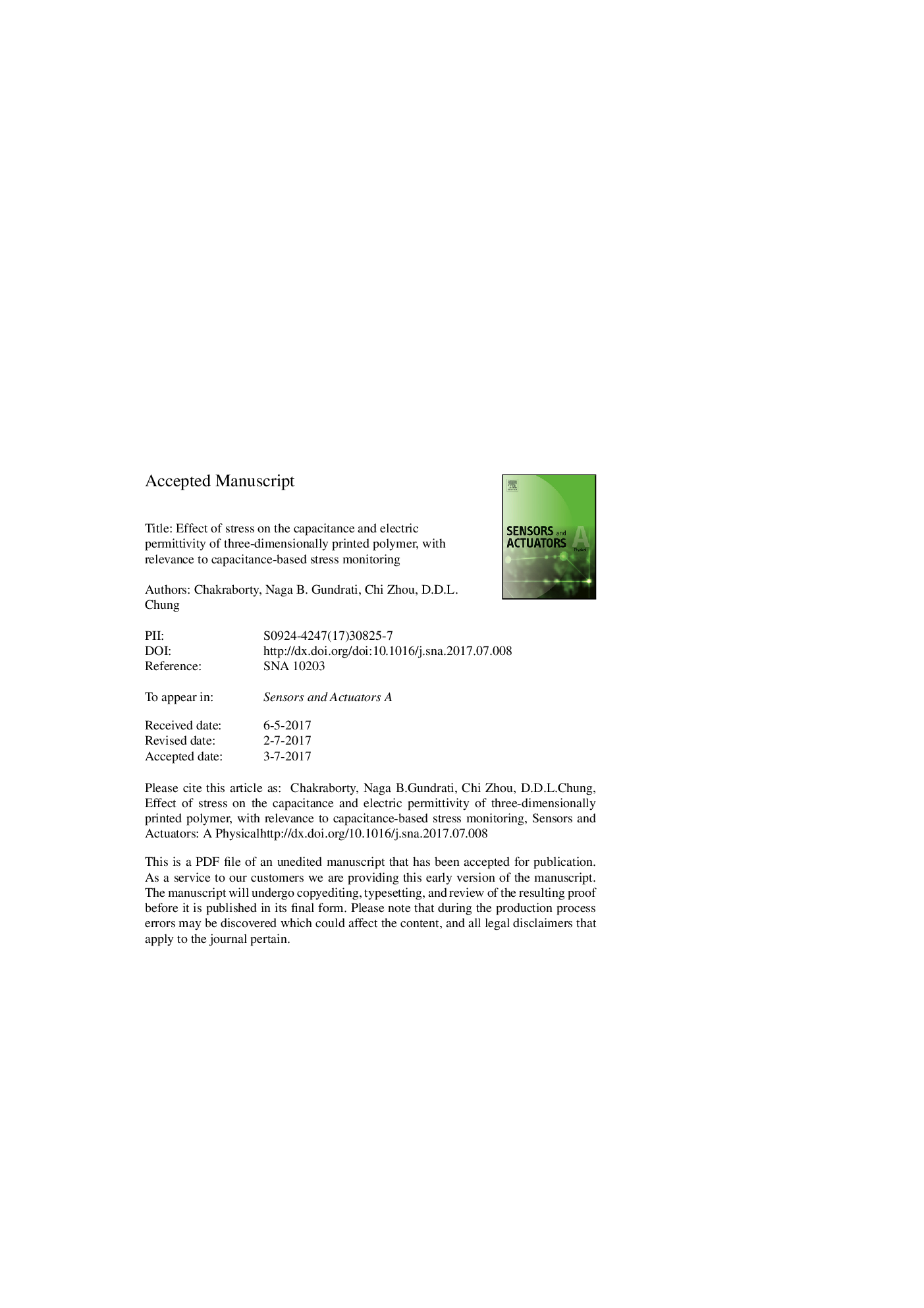| Article ID | Journal | Published Year | Pages | File Type |
|---|---|---|---|---|
| 5008058 | Sensors and Actuators A: Physical | 2017 | 26 Pages |
Abstract
This paper provides the first report of the effect of stress on the capacitance and electric permittivity of a three-dimensionally (3D) printed polymer. This effect is relevant to capacitance-based stress monitoring. The reported capacitance, permittivity and stress are all in the out-of-plane direction. The stress is compressive up to 0.9 kPa. The printing involves bottom-up stereolithography, using an ultraviolet-curable acrylate ester resin. Each specimen has 20 layers. The layer thicknesses are 26, 33 and 46 μm. Both the capacitance and permittivity increase monotonically and reversibly with increasing stress for all three layer thicknesses, such that the increase is relatively abrupt in the low-stress regime below 0.1 kPa. This means that the capacitance can serve repeatedly as an indicator of stress, with the sensitivity being particularly high at low stresses. For all three layer thicknesses, there is a very slight degree of irreversibility in the capacitance change upon unloading, such that the capacitance is slightly higher during unloading than during the prior loading. The capacitance increase is attributed totally to the increase in permittivity. The increase in permittivity with increasing stress is attributed to the increase in the degree of in-plane molecular alignment. For any stress level, whether during loading or unloading, the permittivity decreases with increasing layer thickness.
Related Topics
Physical Sciences and Engineering
Chemistry
Electrochemistry
Authors
Patatri Chakraborty, Naga B. Gundrati, Chi Zhou, D.D.L. Chung,
